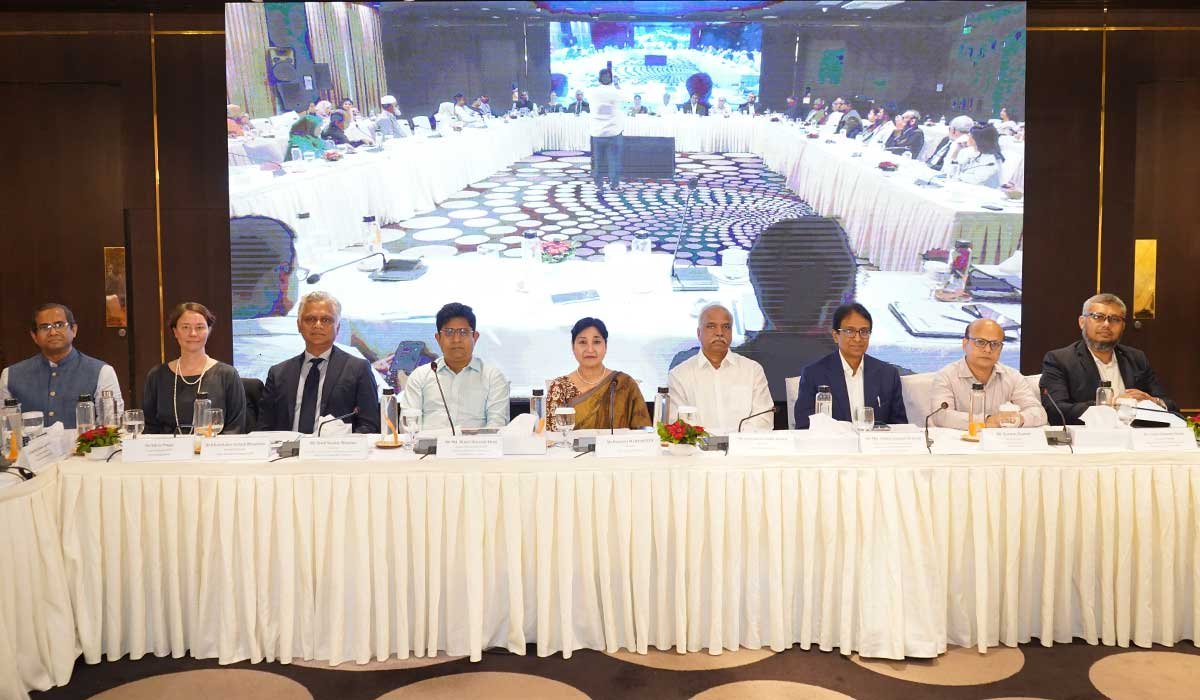
The Centre for Policy Dialogue (CPD) has stressed the urgent need to update the Bangladesh Labour Act (BLA) to ensure the nationwide implementation of the Employment Injury Scheme (EIS). Key reforms include making the EIS mandatory with employers contribution, penalising non-participation, and enabling digital accident reporting.
At the Fourth Social Insurance Forum, held on June 25, 2025, stakeholders discussed the progress and challenges of the EIS pilot, which is currently limited to the RMG sector, particularly the member factories of BGMEA, BKEMEA and EPZ and leather and footwear. Organised by CPD in collaboration with GIZ, the forum focused on scaling the scheme to other sectors like leather and footwear by 2027. Discussions highlighted the need for legal reforms to include occupational diseases, expand rehabilitation support, and raise awareness on EIS among workers and employers.
Ms Parveen Mahmud FCA, Member of CPD’s Board of Trustees, stated, ‘Collaboration among government, employers, and workers is critical to the EIS’s success. This forum marks a significant step towards covering all sectors.’
Dr Silvia Popp, Project Manager at GIZ, added, ‘We need stronger reporting mechanisms and expanded coverage to ensure all workers benefit from the EIS.’
Dr Khondaker Golam Moazzem, Research Director at CPD, highlighted the importance of stakeholder collaboration, saying, ‘Today’s discussiom is essential for scaling the EIS and securing the legal reforms needed.’
The keynote by Mr ASM Shamim Alam Shibly, Senior Research Associate at CPD, called for significant legal and institutional reforms for the EIS to protect all workers.
Mr Syed Sultan Uddin Ahmed, Chairman of the Workers’ Rights Commission, recommended a single institution for National Social Security, urging a holistic approach to schemes like the EIS.
Mr Md. Munir Hossain Khan, DG, Central Fund, Ministry of Labour and Employment, stressed the role of government intervention, stating, ‘Government action is key to building trust and addressing misconceptions about insurance.’
Mr Md. Abdus Samad Al Azad, Joint Secretary, Ministry of Labour and Employment, pointed out, ‘Budget formulation often hesitates to allocate funds for social security. Employee injuries disrupt operations, which has led to greater interest in the EIS.’
Mr Sarwar Kamal, Deputy Secretary, Cabinet Division, called for a strategic approach to policy, saying, ‘Policies must account for unique individual situations.’
Mr Syed Nasim Manzur, President of LFMEAB, discussed the need for safe worker transportation, ‘We need dedicated road sectors for worker travel and physiotherapy centres near factories.’
Mr Fazlee Shamim Ehsan, Executive President of BKMEA, emphasised, ‘Awareness is key to the success of the EIS. A national scheme is needed to protect all workers.’
Mr Md. Shafiqul Islam, Special Advisor to the EIS Pilot, shared the sensitivity of claims and said ‘We must handle claims like widow compensation confidentially and ensure support reaches the rightful recipients.’
Mr ANM Saifuddin, Member Panel of BGMEA, suggested that government should compensate for injuries outside work hours, stating, ‘Employers are responsible within the workplace, but outside that, the government must step in.’
Mr Razequzzaman Ratan, President of Socialist Labour Front, noted, ‘The issue of who receives compensation is complex, especially when there’s no guardian for a deceased worker’s child.’
Ms Noushin Safinaz Shah, National Project Coordinator at ILO, concluded, ‘Clear communication of the EIS concept is vital for its successful implementation and acceptance by all parties.’


